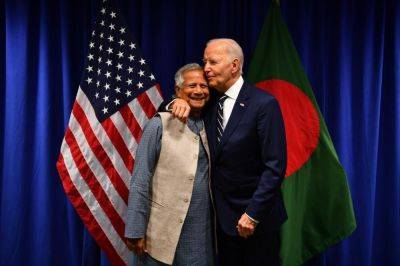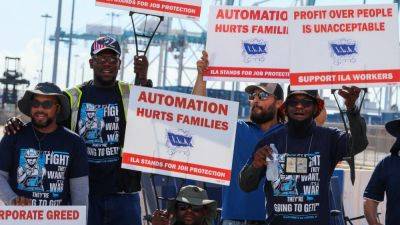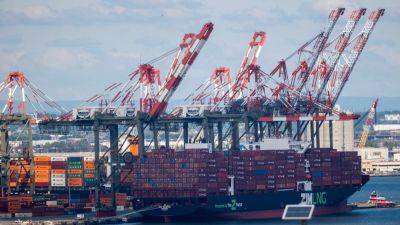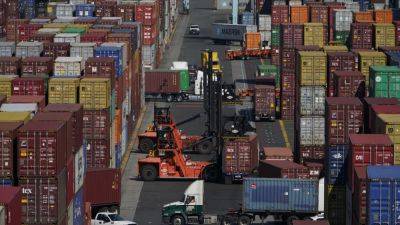The East and Gulf coast ports strike could be a no-win situation for the Biden administration
President Joe Biden and his administration are sticking to their position of not invoking the Taft-Hartley Act to force International Longshoremen's Association dock workers back on the job at East and Gulf coast ports where a strike is hitting day two on Wednesday, a political decision that reflects the power of unions one month out from an election but risks losing some progress on what is the No. 1 issue for many voters: the economy.
Rhetoric from Cabinet secretaries, including Transportation Secretary Pete Buttigieg and acting Labor Secretary Julie Su, has become sharper in recent days, pointing the finger at the ports ownership and ocean carriers. But right now, there is no sign of any progress bringing the ILA and port owners back to the table for a new round of negotiations, according to CNBC sources. And there remains a big risk on the other side of the political decision-making: wage increases that are a win for workers but ultimately ripple through the economy in the form of higher prices, both domestically and around the world.
Much of the focus about the economic impact of the ports strike to date has been focused on the direct hit to the economy from the massive trade shutdown, and the ways in which supply chain congestion and delays can result in higher prices being passed along to consumers, which will become a bigger factor the longer a strike persists. But maritime and business experts are also warning about the risk of persistent wage inflation making its way into supply chain prices that the Federal Reserve has recently been successful in taming.
"The wage increase would indeed be passed on and eventually be paid by the importers," said Lars Jensen, CEO of Vespucci Maritime, a maritime shipping







